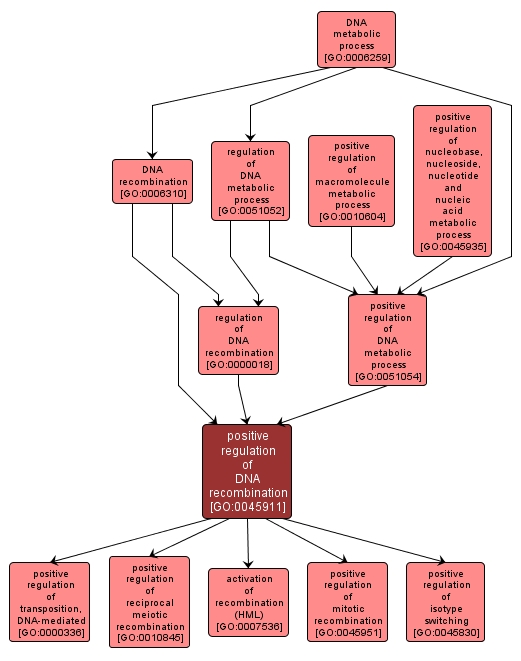GO TERM SUMMARY
|
| Name: |
positive regulation of DNA recombination |
| Acc: |
GO:0045911 |
| Aspect: |
Biological Process |
| Desc: |
Any process that activates or increases the frequency, rate or extent of DNA recombination. |
Synonyms:
- activation of DNA recombination
- up-regulation of DNA recombination
- stimulation of DNA recombination
- upregulation of DNA recombination
- up regulation of DNA recombination
|
|

|
INTERACTIVE GO GRAPH
|














